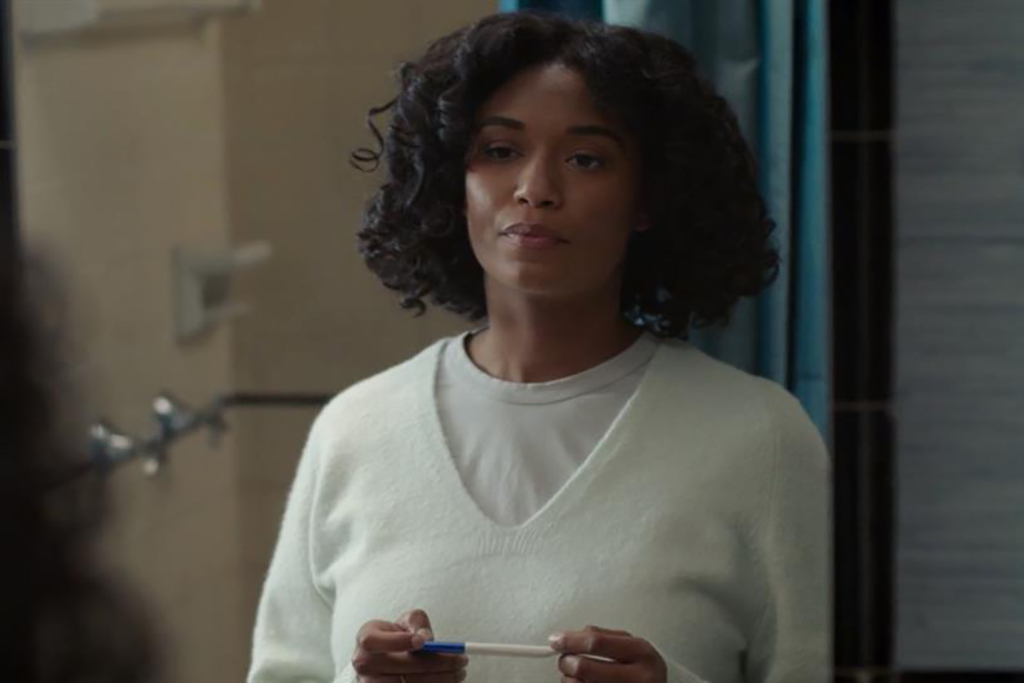

Roe v. Wade marked its 49th anniversary on Saturday, but the landmark decision might not survive to celebrate its 50th. Later this year, the Supreme Court’s conservative supermajority will decide on Mississpi’s abortion law in the Dobbs v. Jackson case. If overturned, the case would threaten key elements of Roe v. Wade and erase the progress the United States has made on reproductive freedom since 1973.
To raise awareness around the issue, the American Civil Liberties Union (ACLU) and creative agency Oberland teamed up on a new campaign that provokes viewers with the idea of forced pregnancy. It is directed by Samantha Scaffidi of the production company Smuggler.
“We had an opportunity to do something new and different because these laws are a new level of unlawful, limiting and hurtful towards our progress,” said Kate Charles, Oberland’s Chief Strategy Officer. The spot “Disclaimer” follows a woman who discovers she is pregnant. “Are you seeking an abortion? Talk to your doctor,” the voice-over says. The spot mimics a pharmaceutical ad, rattling off the “side-effects” to seeking an abortion.
The announcer states “unnecessary restrictions and politically-motivated bans may apply,” while showing the woman traveling far out of state, finding a locked door to a clinic and being told she must return the next day.
The spot closes out with the message, “Banning Abortion is Forcing Pregnancy.” “Abortion is healthcare, and people don’t see it as such,” said Charles. “There are restrictions that will prevent pregnant people from getting abortions – even though it’s legal, and a medical procedure. We felt like there was just enough of a twist in the storyline to get people to pay attention in a crowded environment to an issue that most people don’t want to hear about.”
The key was using the term “forced pregnancy” instead of abortion, which centers the narrative on the pregnant person. “We felt by changing the terminology we were highlighting the pregnant person’s life, and the cruelty and control that politicians are trying to enforce on people, which are very un-American, and these restrictive laws that are controlling bodies,” said Charles.
The campaign will follow up with a second spot, titled “Forced,” in February, which will air digitally and on streaming services. The spot shows what people seeking abortions are forced to deal with, including paying for care, hours of travel, taking unpaid leave from work and oftentimes, staying pregnant.
The campaign will also include digital ad units, which are geographically targeted to states where abortion access is restricted. “I think getting people to say I’m pro-life is much easier to say than ‘I am pro-forced pregnancy,’” said Charles. “Forcing people to rethink the language they use, how they empathize and understand who is being affected by these restrictions, might actually put pressure on legislation and these restrictive laws and help overturn them.”
more recommended stories
 Red Blood Cells Improve Glucose Tolerance Under Hypoxia
Red Blood Cells Improve Glucose Tolerance Under HypoxiaKey Takeaways for Clinicians Chronic hypoxia.
 Pediatric Crohn’s Disease Microbial Signature Identified
Pediatric Crohn’s Disease Microbial Signature IdentifiedKey Points at a Glance NYU.
 High-Fat Diets Cause Damage to Metabolic Health
High-Fat Diets Cause Damage to Metabolic HealthKey Points Takeaways High-fat and ketogenic.
 Can Too Many Antioxidants Harm Future Offspring?
Can Too Many Antioxidants Harm Future Offspring?Key Takeaways High-dose antioxidant supplementation in.
 Human Antibody Drug Response Prediction Gets an Upgrade
Human Antibody Drug Response Prediction Gets an UpgradeKey Takeaways A new humanized antibody.
 Dietary Melatonin Linked to Depression Risk: New Study
Dietary Melatonin Linked to Depression Risk: New StudyKey Summary Cross-sectional analysis of 8,320.
 Type 2 Diabetes Risk Identified by Blood Metabolites
Type 2 Diabetes Risk Identified by Blood MetabolitesKey Takeaways (Quick Summary) Researchers identified.
 Microglia Neuroinflammation in Binge Drinking
Microglia Neuroinflammation in Binge DrinkingKey Takeaways (Quick Summary for HCPs).
 Durvalumab in Small Cell Lung Cancer: Survival vs Cost
Durvalumab in Small Cell Lung Cancer: Survival vs CostKey Points at a Glance Durvalumab.
 Rising Chagas Parasite Detected in Borderland Kissing Bugs
Rising Chagas Parasite Detected in Borderland Kissing BugsKey Takeaways (At a Glance) Infection.

Leave a Comment